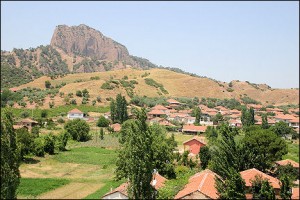 The bucolic scenery in Turkey radiates with sincerity and health. You will also see the orchards, vineyards and vegetable fields growing delicate and you will be able to admire both cows and sheep cared by shepherds who smoke the pipe and talk to the animals.
The bucolic scenery in Turkey radiates with sincerity and health. You will also see the orchards, vineyards and vegetable fields growing delicate and you will be able to admire both cows and sheep cared by shepherds who smoke the pipe and talk to the animals.
Don’t be surprise then: they try to use the animals’ own language, let them feeling happy in their pastures as free-ranging chickens.
In addition to grains, staple crops include rice, cotton, sugar beets, tobacco and potatoes. This abundance of food products have contributed to the richness of the cuisine.
Reforestation is an ongoing process throughout the country. Although many of the highway signs look like billboards, they are actually display slogans lauding the benefits and sanctity of forests.
The high pace of industrialization is evident from the factories along the highways. Active government participation encouraged industrial modernization during the early decades of the Republic.
In addition to this, all the main industries in the area include mining, manufacturing and textiles and the majority of financial institutions were state owned and operated.
That means that, beyond the sun, sea and ancient ruins, lies the working landscape. Along with the Aegean and Mediterranean coasts, industrial, residential and recreational lands complete the beautiful scenery you can see around.
Moreover, the building boom has not yet reached the proportions found along the Western Mediterranean with its pollution and overcrowding. It means more contact with nature, and environmentalists appreciate the sensitive approach taken to preserve and yet enjoy the friendliest nature ever found.
If it is true that new developments of all shapes and sizes are popping up all along the Turkish coastline, it is also true that Turkish people love nature and care about it: they keep every spots clean, since it is the place where they live.
